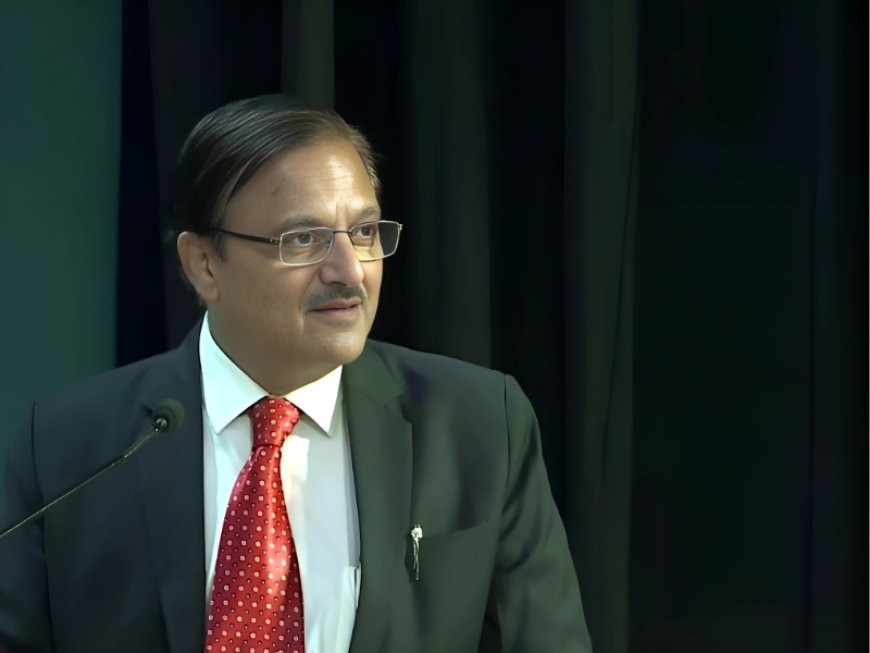JUSTICE ABHAY OKA – A JUDGE WHO ROSE ABOVE OPTICS
A principled judge known for his integrity and commitment to justice, Justice Abhay Oka stood firm on constitutional values, rising above political and public optics.

In the courtroom corridors, there’s an unspoken truth that every practicing lawyer knows but rarely says aloud—face value works. Especially in the Supreme Court, and frankly, in most other courts too.
You may present the same argument with the same case law, but if it comes from a senior advocate, the court listens. If you say it as a regular counsel, chances are you won’t be heard the same way. It’s not about merit, it’s about optics. And optics, unfortunately, work everywhere.
I remember once discussing this with a well-decorated senior advocate. He too agreed. “It’s the same point,” he said, “but it depends on who is saying it.” That’s the harsh truth. A good judge, in my view, is one where face value is irrelevant. Where your standing in the bar doesn’t matter. Where the facts and the law are the only things that count.
That’s where Justice Abhay Oka stood apart. He listened. He respected your presence regardless of your title. Whether you were a junior advocate or a senior counsel, whether the case was high-profile or routine—his attention to the matter never changed. He didn’t allow the glitter of a 'Page 3' case to cloud his judgment, nor did he dismiss an ordinary bail matter with just a glance at the file.
You’d often see courts go all out in Page 3 matters. Judges become overly sensitive, overly idealistic, quoting law and equity from every corner of the Constitution—because the whole world is watching. But the same judges, in matters that affect lives but don’t make it to the media, often wrap things up in 15 seconds. Justice Oka was beyond all this.
He gave time to every matter. He gave respect to every lawyer. He gave relief where it was due, even if the case had no media presence, no big names, and no public attention.
His legacy is not the high-profile PMLA bail orders where he pulled up investigating agencies. That’s what made news. But what made a difference was how he granted bail to every deserving undertrial, regardless of who the accused was, who the lawyer was, or what the case was about. The matters that get attention is hardly the yardstick of judging the work of any judge. The very fact that each matter got the same attention, wisdom, courage and empathy from a Judge shows
his consistency and his concern for Justice.I have had the privilege of appearing before him multiple times. And every time, I walked out feeling heard. Not because I had a name, but because I had a case. Justice Oka was a rare combination of wisdom, courage, firmness, alertness, incorruptible, patience, sympathy, and insight.
His wisdom can be seen from the short, crisp and succinct judgements passed by him in matters involving Constitutional, Criminal, Service, Environment, Matrimonial matters. There was hardly any branch of law with which he remained elusive to.
On the date of his retirement, he passed a very strong and eye opener judgment, i.e. In Re: Right to Privacy of Adolescent. Here, accused was not sentenced on the grounds that the victim had an emotional bond with the accused. Despite the fact that the POCSO offense was proven, the victim did not view it as a crime and had not experienced any trauma. If there was any trauma, it was the ensuing legal system. This ruling of the Court opens our eyes to the POCSO Act's reach and
extent in relation to adolescent marriage and love.
In Imran Pratapgarhi vs State of Gujarat, the observation given, is worth a mention – “In a healthy democracy, the views, opinions or thoughts expressed by an individual or group of individuals must be countered by expressing another point of view. Even if a large number of persons dislike the views expressed by another, the right of the person to express the views must be respected and protected. Literature including poetry, dramas, films, stage shows including standup comedy, satire and art, make the lives of human beings more meaningful. The Courts are duty-bound to uphold and enforce fundamental rights guaranteed under the Constitution of India. Sometimes, we, the Judges, may not like spoken or written words. But, still, it is our duty to uphold the fundamental right under Article 19(1)(a).”
In the context of section 138 of the Negotiable Instrument Act, 1881, he in Rekha Sharad Ushir vs Saptashrungi Mahila Nagari SahkariPatsansta Ltd. Criminal Appeal no. 724/2025 dated 26.03.2025 held that a litigant who suppress material facts from Court is liable to be thrown out at the threshold.
The unwavering respect, love and affection for an erudite, upright and incorruptible Judge by the bar on his day of retirement, is testament of the fact that it is not the right side or the wrong side of the decision on which a lawyer was on in his Court, but the fact that justice was served to the parties.
We hope Justice Oka is given the task of imparting training to judicial officers at all levels. We need judges who see beyond optics, beyond hierarchy, and beyond headlines.
Portrait of Hon’ble Justice H.R. Khanna hangs on the wall of Court no.2 of the Supreme Court of India, a reminder of the invaluable contribution he made; likewise, a day should come when the portrait of Hon’ble Justice Abhay S. Oka is hanged on the wall of Court no. 3, from where he retired, for his invaluable contribution to the Constitutional ethos.Justice Oka didn't just wear the robe—he honored the seat. A judge in the truest sense of the word.







